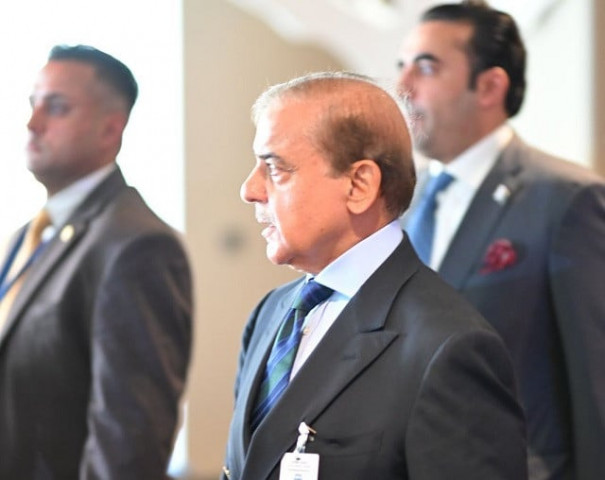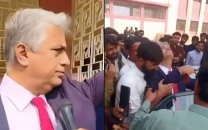Russian wheat can help overcome shortage: PM
Shehbaz says Kashmir dispute hindering trade with India

Prime Minister Shehbaz Sharif has said that Pakistan might have to import about a million tons of wheat because of the destruction of farmland due to flooding.
“It can come from Russia, but the country is open to other offers,” he said in a wide-ranging interview with a foreign news agency.
“The country also needs fertilizer because factories involved in their production are closed,” he added.
Flooding likely worsened by climate change has submerged one-third of Pakistan’s territory and left 33 million of its people scrambling to survive, according to the prime minister, who says he came to the United Nations this year to tell the world that “tomorrow, this tragedy can fall on some other country.”
Even before the floods began in mid-June, Pakistan was facing serious challenges from grain shortages and skyrocketing crude oil prices sparked mainly by Russia’s February 24 invasion of Ukraine and the war that has followed.
The prime minister said skyrocketing prices have put the import of oil “beyond our capacity”, and — with the damage and destruction from the massive flooding — solutions have become “extremely difficult”.
One dimension of grain purchases taps into one of Pakistan’s most existential issues — its relationship with neighboring India.
When asked about the possibility of buying grain from India if needed, the prime minister said that the notion is impeded by “a legal bottleneck” — Kashmir.
“India is a neighbour, and Pakistan would very much like to live like a peaceful neighbour with India,” the prime minister said.
“But that has certain prerequisites. India has to understand that unless and until the burning issue of Kashmir is resolved through peaceful talks ... like peaceful neighbors, with the sincerity of purpose, we will not be able to live in peace.”
“And that is a great shame and embarrassment,” he said. “Because in this day and age, we need our resources to feed our people, to educate them, to provide job opportunities, to provide health opportunities. India can’t afford to spend money on buying ammunition and defense equipment. Nor can Pakistan.”
Touching the issue of transparency in flood relief aid, the prime minister said the country has “a very robust, transparent mechanism already in place” to ensure that all aid items are delivered to people in need.
In addition, he said, “I will ensure third-party audit of every penny through international well-reputed companies.”
He said he met top officials from the International Monetary Fund and World Bank and appealed for a moratorium on loan repayments and deferment of other conditions until the flood situation improves.
“They sounded very supportive,” Sharif said, but he stressed that a delay “can spell huge consequences” — both for the economy and for the Pakistani people.



















COMMENTS
Comments are moderated and generally will be posted if they are on-topic and not abusive.
For more information, please see our Comments FAQ